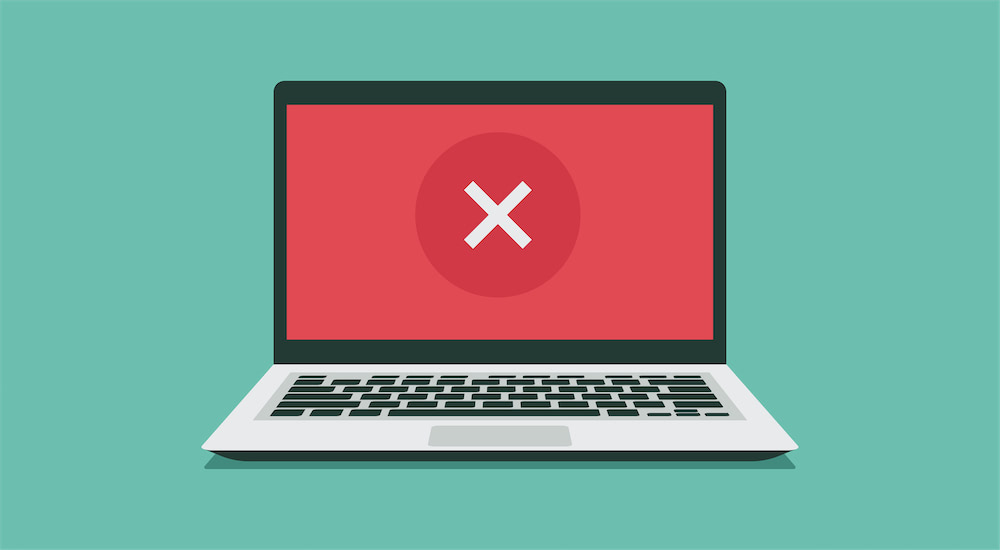What if you woke up one day and when attempting to log into any one (or all) of your online services (hosting, social media, etc), you are presented with the dreaded “FILE NOT FOUND” error, or “ACCOUNT HAS BEEN SUSPENDED” notice.
After racking your brain trying to understand why this has happened, you start to panic… Did you say something unpopular the day before? Was your account hacked? Perhaps someone at your web host or at Facebook, made a horrible mistake and inadvertently marked your account for deletion!
Either way, your hard work, perhaps even your livelihood, is now in digital jail.
Unless you have significant resources to put towards arguing your case to some secretive, quasi-judicial group of individuals who have absconded with your digital assets, the pain of rebuilding your business online is going to be considerable.
It doesn’t matter what you did or didn’t do to deserve this result, your own personal digital Armageddon has arrived and it’s pretty clear you were totally unprepared for it.
So what could be done to mitigate the impact of such an event on your business?
Here are five steps you can take to minimize the consequences of de-platforming:
1. Make backups of EVERYTHING.
Do you ever read those long terms-of-service contracts that online platform make you sign before you can use their services? If you’re like most people, you don’t. Most of them are long, convoluted and horribly legalistic, but deep in the legal copy you’ll find it states that they can remove your account for little or no reason.
Knowing this, you should never, ever publish anything online without first making a local copy of it. Your writings, images, etc, are yours. Never assume an online service is going to respect your ownership of those assets.
2. Don’t treat platforms like platforms.
Marginalize your dependency on external platforms to connect with your clients and/or audience. You should treat platforms like Facebook, Twitter, LinkedIn, etc, like any other advertising medium whose function is to send sales leads to your website or business telephone. From a business perspective, these social media platforms should exist to provide marketing opportunities that your business would not have otherwise. They should not be treated as critical business communication infrastructure. If you have grown accustomed to only communicating with your clientele via external platforms, your communication strategy is deeply flawed.
3. Be your own monopoly.
You can avoid being de-platformed by never letting an individual platform monopolize your digital communications. In practice, this means that any content you post to platforms like Facebook, Twitter, Medium, etc, should be mirrored across multiple online services and should all point back to a presence you control directly. Whether that presence is your business website, an online newsletter archive, a phone number, or even a physical location, is completely up to you. However, if you are putting all of your digital eggs in one basket, you can expect to be disappointed when the basket is suddenly ripped away from you.
4. Don’t gamble anything you can’t afford to lose.
I’m sympathetic to those “revolutionaries” who choose to take an internet stand on a specific cause and use their business as a megaphone to amplify their positions. However, your communication strategy should operate on this simple principle: can you really afford to do [insert controversial action here] if this action causes negative consequences to your business?
Freedom of speech arguments aside, you should be cognizant of what the function of your online business presence is for. Making the distinction between what is appropriate for your business and what is appropriate for your personal life, is a very useful guiding tool. Your position may very well be rational and well thought-out, but other people’s opinions rarely are.
Unfortunately, the Internet favors anonymity, and the network-effect of online dissent creates opportunities for those who disagree, to cause serious damage to your business. Are you willing to gamble your business’s reputation, particularly if you can’t afford to lose your business? What about your employees, clients and customers that rely on your business? These are all important factors to consider before you roll the dice and speak publicly about controversial issues.
5. Have a backup plan if any part of your business is in the cloud.
Cloud computer and online business service platforms like Amazon AWS or Google Cloud, have created an opportunity to outsource some critical business infrastructure to save costs and potential headaches. But have you ever tried to speak to someone at these platforms? There is a good reason these services are so affordable, because they operate on scale, massive scale, meaning that if you encounter a problem, there is a good chance your problem is being experienced by thousands, perhaps even millions of customers. If you must place your work on a specific platform, make sure you have a backup plan if that particular platform becomes unavailable.
In conclusion, the possibility of being de-platformed is a sobering reality that every business must be prepared for in today’s digital age. By proactively taking steps such as making backups of all your content, treating platforms as mere tools rather than essential infrastructure, diversifying your digital presence, being mindful of the risks associated with controversial communications, and having a robust backup plan for any cloud-based services, you can significantly mitigate the impact of such an event. Ensuring that your business is resilient and adaptable in the face of unexpected challenges will safeguard your hard work and livelihood, allowing you to continue thriving even if you encounter digital setbacks. Remember, the best defense against de-platforming is preparation and diversification.
If you are interested in hearing how we could help your business protect itself from the potential negative consequences of de-platforming, please contact us today.

